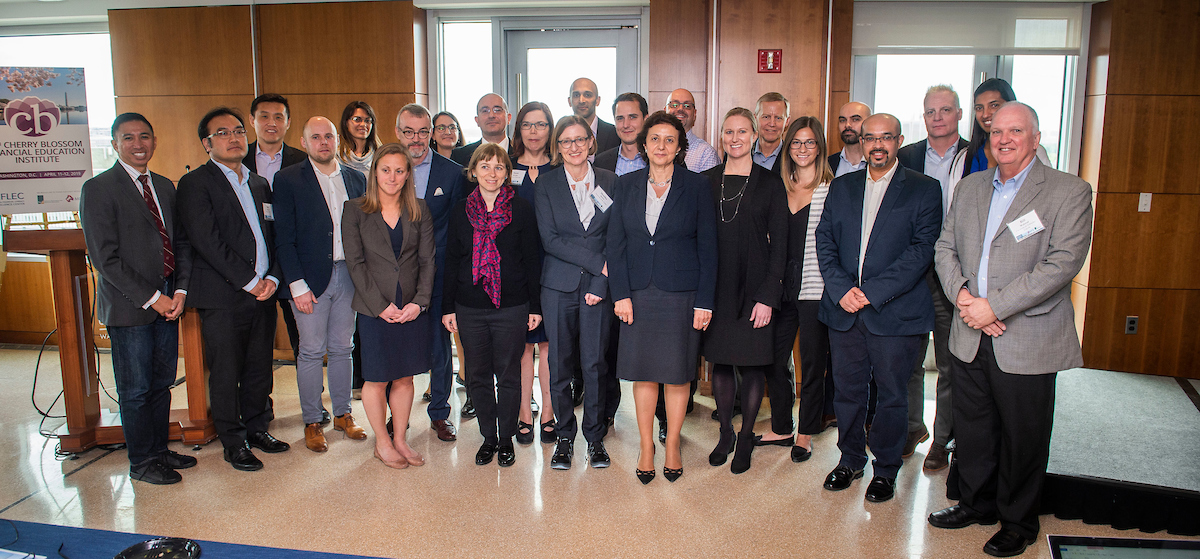NEFE encourages rigorous research in financial capability topics and for the fifth year continued its support of the Cherry Blossom Financial Education Institute hosted in April by the Global Financial Literacy Excellence Center (GFLEC) at George Washington University.
"The quantity and quality of peer-reviewed citations in financial literacy research is growing substantially, increasing our understanding and allowing us to rely on a more robust body of knowledge," says Billy Hensley, Ph.D., president and CEO of NEFE. "Better analysis creates better interventions, leading to better outcomes."
Presenters and attendees from across the globe heard a keynote address from Dr. Monika Bütler, professor of economics and public policy at the University of St. Gallen in Switzerland, providing insight on retirement financial decision making abroad. Additionally, Dr. Tim Kaiser, of the German Institute for Economic Research (DIW Berlin), presented The Effect of Financial Education on Downstream Behavior, a study coauthored by Dr. Lukas Menhoff at DIW Berlin; Annamaria Lusardi, Ph.D., of GFLEC; and Carly Urban, Ph.D., of Montana State University.
Katherine Sauer, Ph.D., NEFE’s senior director of education, research and strategic impact, says the study “provides some of the clearest evidence yet of positive effects of education on behaviors and knowledge. This analysis effectively summarizes the proliferation of research that has come out over the past five years.”
The event also featured the presentation of the Financial Literacy Research Award, sponsored by NEFE. This year’s recipients were Philippe d’Astous of HEC Montréal, who won for his paper titled “Tax-Sheltered Retirement Accounts: Can Financial Education Improve Decisions?”; and Gopi Shah Goda of SIEPR, Stanford University, who was recognized for her paper entitled “Who is a Passive Saver Under Opt-In and Auto-Enrollment?”

